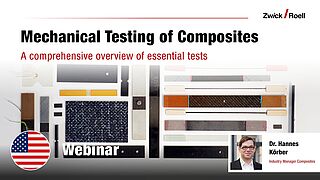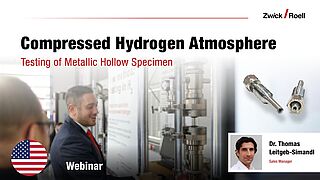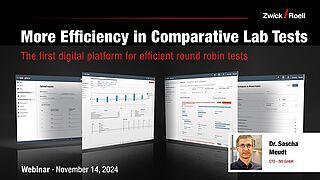Welcome to our webinar archive!
Here you will find a selection of exciting and informative webinars on the subject of materials testing. Our industry specialists offer their extensive expertise and deliver comprehensive insights into the newest challenges and solutions in mechanical material characterization. Watch our videos and expand your understanding of the complex processes that ensure the quality and performance of materials.
Please address any questions to webinar@zwickroell.com.










